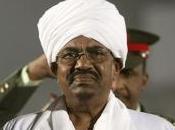
‘Because I am surrounded by good people, I try to do what good people do. But it is very difficult. It does not flow from me naturally. . . . I am evolving from being an animal. But it is going very, very slowly.” Shin Dong-hyuk was speaking to Blaine Harden, a reporter for Frontline and a contributor to The Economist who has served as the Washington Post’s bureau chief in East Asia. Harden has recently authored the gripping memoir Escape from Camp 14: One Man’s Remarkable Odyssey from North Korea to Freedom in the West.
As Harden recounts, Shin was born in 1982 in Camp 14 in North Korea, a “no exit” political camp largely populated by entire families. It is one of six camps that may hold a total of 200,000 prisoners, the biggest of which occupies an area larger than Los Angeles. These camps are clearly visible in satellite reconnaissance photos, but North Korea denies that they exist.
Shin is believed to be the first person born in such a camp ever to escape. His family was there because his father’s two brothers fled south during the Korean War. Until his escape, Shin was always infested with lice. There was never any water for bathing or even a way to brush one’s teeth. Everyone smelled like a farm animal, so no one else was bothered by the odor. The camp diet was corn, cabbage, and salt. Pellagra was a common cause of death. To this day, the only fertilizer generally available in the camps and in the country as a whole is human excrement. In 2008, South Korea halted donations of chemical fertilizer in response to provocations from the North.
In the camp, children go to school to learn the most basic of skills — reading, writing, addition, and subtraction, which are judged to be all they need to know to prepare them for a life of backbreaking labor. Shin’s teacher was a uniformed guard with a pistol. During his first 23 years, Shin saw only one book, a Korean grammar. One day his teacher found five kernels of corn hidden in the filthy clothes of a student, a six-year-old girl. She was made to kneel on the concrete floor while the teacher beat her over the head with his pointer. Bumps on her skull appeared, blood flowed from her nose, and she collapsed. Several students were ordered to carry her home, where she died that night. Shin and his classmates were indifferent to what was happening before their eyes. She had broken the rules; she deserved her punishment.
Shin felt differently when, at age 14, he watched as his mother was hanged and his brother faced a firing squad: He hated them. She would beat him when he stole her food, and he had seen her cooking rice, an unheard-of delicacy, for his brother. When Shin overheard his mother and brother planning an escape, he dutifully reported it to a guard, but the guard took credit for uncovering the plan, so Shin and his father were tortured in a hidden underground dungeon for months in the certainty that they had known of the plan and had not reported it. Shin was suspended by ankle and wrist shackles over hot coals. When he writhed away from the heat, his torturer slammed a hook into his pubic area to hold him in place.
When the guard’s duplicity was discovered, he disappeared and Shin and his father were released to witness the executions. His mother and brother deserved their punishment, he believed. He had not deserved his.
L’articolo prosegue su: National Review Online
(l’articolo puo’ anche essere ascoltato da una voce narrante in inglese)
Filed under: Dittature, Valori della Sinistra





